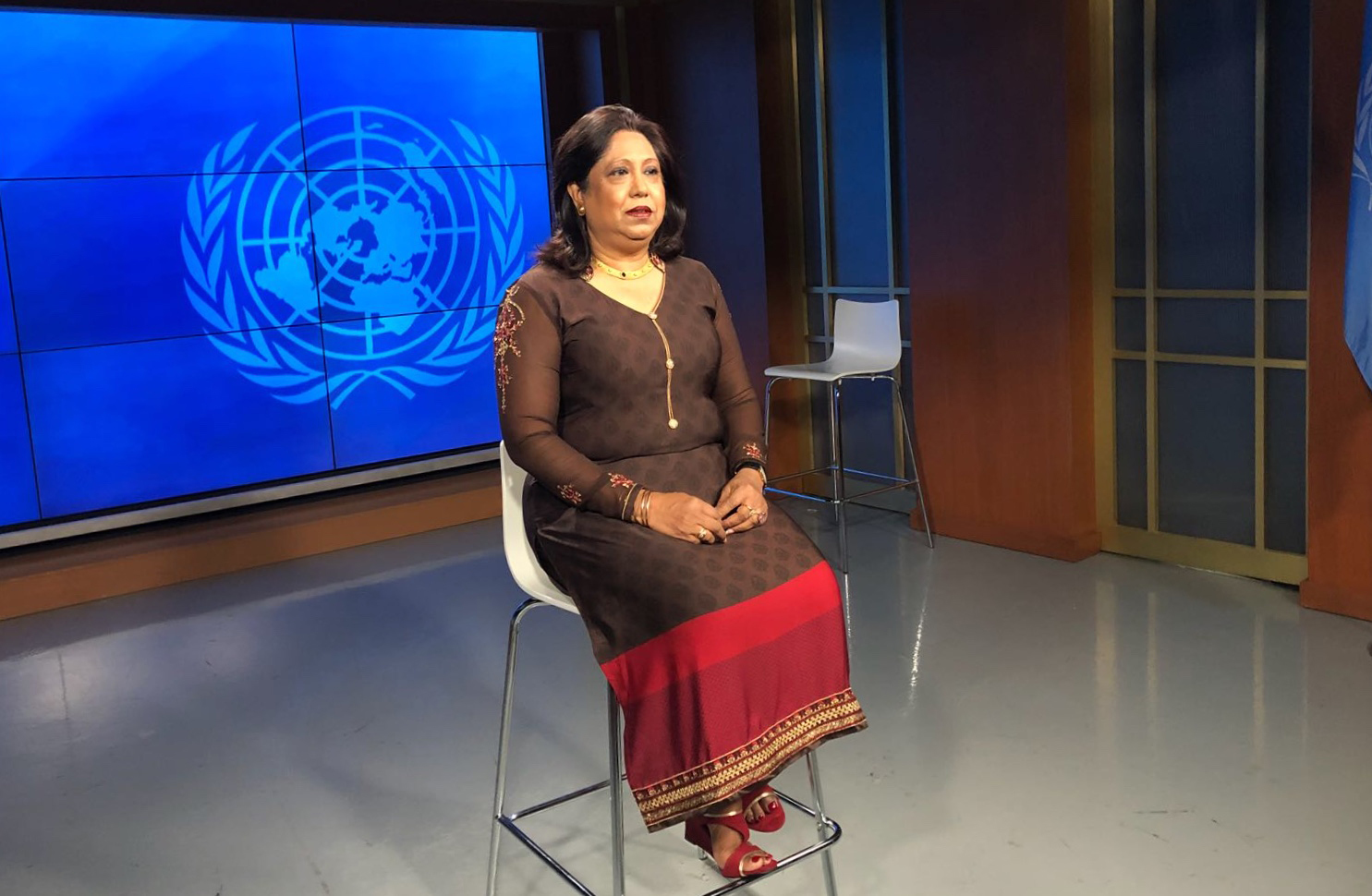Distinguished participants, ladies and gentlemen, warm greetings,
I regret not being able to attend in person this important training on “Accountability of ISIL/Daesh Crimes in Iraq” and I accordingly thank UNODC for giving me the opportunity to deliver these remarks.
Impunity for sexual violence reverberates in homes and on the streets, and contributes to these crimes being viewed as less serious. The paucity of domestic prosecutions for crimes of sexual violence, the limited volume of international prosecutions for these crimes and the scale worldwide of crimes of sexualized violence, particularly in situations of armed conflict, continue to leave a significant impunity gap. When sexual violence is not addressed, it is ‘normalized’ in post-conflict contexts, often resulting in increased levels of violence against women
Since assuming office one year ago as United Nations Under Secretary General and Special Representative of the Secretary General on Sexual Violence in Conflict, one of the key messages that I reiterate globally is that we must reverse cultures of impunity for sexual violence, which has been history’s most silenced crime, into cultures of deterrence and prevention through justice and accountability.
Since 2016, my Office has been fully engaged in addressing accountability for conflict-related sexual violence in Iraq. Our most visible expression of that commitment is the signature in 2016 of a Joint Communiqué between the United Nations and the Republic of Iraq through which the Government pledged to ensure accountability for sexual violence crimes and the United Nations committed to supporting the Government of Iraq in doing so.
ISIL has subjected women, girls, men and boys, especially Iraqi women and girls from the Yezidi and Turkmen Shia communities, to various forms of sexual violence such as rape and sexual enslavement, physical and psychological violence and trafficking.
The Iraqi Government has the obligation, under domestic law and international human rights law, to ensure that all victims have access to justice and reparations. This obligation includes ensuring accountability of the alleged perpetrators, through trials before independent and impartial tribunals, conducted in a gender-sensitive manner, for the full range of the crimes they committed. However, currently, trials are being conducted only under antiterrorism law which does not explicitly designate sexual violence as a crime.In June 2017, I met with Yezidis women survivors of sexual violence and sexual slavery at the hands of Daesh perpetrators who have obtained asylum in Germany under the Special Quota Project. In February 2018, I visited Iraq and in Mosul and Erbil, I met with survivors of sexual violence from all components of the Iraqi society- Yazidi, Shia, Sunni, or Christian. They all shared with me their worst nightmares but also their greatest aspiration for justice and demanded that the perpetrators be held accountable for their crimes.
The physical, mental, and emotional injuries inflicted by ISIL are almost beyond comprehension. If victims are to rebuild their lives, and indeed those of their children, they need justice and they need redress.
In Baghdad, I met with the Prime Minister, the Ministers of Defense, Justice and Foreign Affairs as well as with members of the Iraqi judiciary, including with the High Judicial Council. I expressed my deep concern that up to now there has not been a single prosecution of ISIL/Daesh for crimes of sexual violence and urged the Iraqi Government to ensure that ISIL/Daesh perpetrators are prosecuted for the full extent of the sexual violence crimes perpetrated and not solely on charges of terrorism under the Anti-Terrorism law. Security Council Resolution 1820 calls for the prosecution of those responsible for crimes of sexual violence and highlights the need to end impunity “as part of a comprehensive approach to seeking sustainable peace, justice, truth, and national reconciliation.”
Victims of conflict-related sexual violence are legitimate victims of war and terrorism, entitled to equality before the law with other war-wounded civilians and soldiers. They deserve the same status, public sympathy, reparations and redress. This is critical, as stigma is reinforced by lingering perceptions that rape is somehow a “lesser crime”.
Prosecutions are necessary to demonstrate the intolerance for violations of human rights in peacetime. Accountability for these crimes is critical to building a more just society and to redirecting the shame and stigma suffered by victims towards the perpetrators.
The establishment of the investigative team, pursuant to Security Council resolution 2379, to collect and preserve evidence of serious international crimes committed by Daesh is a crucial step forward on bringing perpetrators of Daesh’s sexual violence to justice.
The United Nations Team of Experts on the Rule of Law and Sexual Violence in Conflict, in my Office, was created by the Security Council to build Member State capacity to end impunity for sexual violence in conflict. The United Nations–Iraq Joint Communiqué specifically invites the Team of Experts to assist Iraqi authorities in investigating and prosecuting crimes of sexual violence.After several technical missions to Iraq, my Office, through the Team of Experts on the Rule of Law, stands ready to provide the Government of Iraq with the support it critically needs to try these complex crimes and to assist the Government in bringing perpetrators to justice and thereby to send a strong message that sexual violence cannot continue with impunity anywhere in the world.
The Government of Iraq and the High Judicial Council have appointed focal points for collaboration with my Office. On 19 June 2018, the Government of Iraq also announced the establishment of an inter-ministerial working group to address sexual violence in conflict, which also provides a unique platform for increased collaboration amongst all stakeholders.
I wish you a very productive training. Please know that I remain personally committed, along with the entire UN system, to supporting the Government of Iraq in ensuring justice and accountability because impunity for the atrocities committed by Daesh is not an option.
Thank you.
/END
~~~
